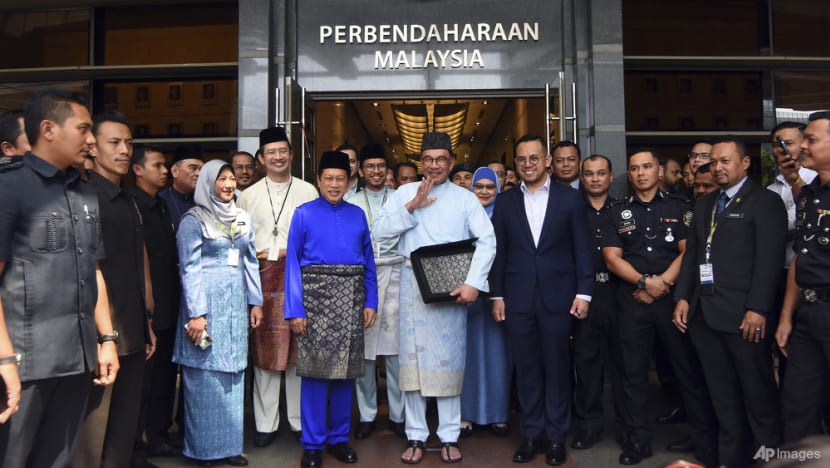Snap Insight: With eye on state polls, Anwar’s budget focused on aid for those struggling
Although this is the biggest budget in Malaysia’s history, it is very much still a recovery budget from the pandemic damage, says James Chin.

HOBART, Australia: Anwar Ibrahim, lauded as Asia’s best finance minister in the 1990s, on Friday (Feb 24) presented his first budget since taking office as Malaysia’s Prime Minister three months ago.
The last time he did this was 26 years ago. The theme for his budget is “Membangun Malaysia Madani” (Developing a Civil Malaysia). People are poring through the 85-page speech for answers to a simple question: “Is this an election budget?”
Now, this might seem like an odd question given that Malaysia just held its general election in November last year. What people are referring to is the upcoming state elections (that must be held by law) in Penang, Selangor, Negeri Sembilan, Kelantan, Terengganu and Kedah. These elections will decide if the Anwar administration remains politically stable.
In Malaysia’s 15th General Election (GE15), the biggest surprise was the “green wave” or the rise of Parti Islam Se-Malaysia (PAS) and the Islamic votes. If Anwar cannot claw back the Islamic votes, which is the same as the Malay heartland vote, then there will be political instability.
Anwar’s Pakatan Harapan (PH) coalition received less than 15 per cent of the Malay votes in GE15. PH’s coalition partner, UMNO, received about 30 per cent of the Malay votes, thus giving Anwar’s government some legitimacy among the majority population.
It is thus crucial that PH and UMNO win the majority of votes in Kelantan, Terengganu and Kedah, which are currently led by PAS, a component party of opposition bloc Perikatan Nasional (PN).
COUNTERING THE NARRATIVE
On Friday, Anwar, who also holds the finance portfolio, tabled a revised RM388.1 billion (US$87.49 billion) budget, the largest in Malaysia to date and about 16 per cent more than last year’s budget. Cost of living issues took centre stage, with RM64 billion for aid, subsidies and incentives.
While the bulk of that will be going to the bottom 20 per cent of the population where the Malays are a clear majority, it is not exactly an “election budget”. Middle-class Malaysians will enjoy a 2 per cent cut to their personal income tax. Those with less than RM10,000 in their retirement fund (EPF) will get a RM500 top up.
Sure, Anwar is reaching out to the core voters by giving direct cash payments. For example, Islamic religious teachers will get between RM100 to RM600 cash payment, while civil servants will get RM700 each. Government pensioners will get RM350. Farmers will get cash and Bernas, the national rice monopoly, will share part of it profits with rice farmers.
Very poor families can get direct cash benefits up to RM2,500. The Islamic bureaucracy will get RM1.5 billion, a clear signal that Anwar’s administration is as Islamic as all previous administration. All this is done to counter the narrative that Islam is being sidelined since there are too many non-Malays in PH and in government.
STILL VERY MUCH A RECOVERY BUDGET
The financial markets will probably be neutral on this budget. What they will like is that there are no shinning big projects that will cost billions. They will like that taxes for small businesses will be reduced, and that some major infrastructure projects will be re-tendered, all of which will led to major savings. They will also like the new proposed taxes for luxury goods like watches and fashion items.
What the markets really want is the reintroduction of a goods and services tax, but they understand this is politically impossible. This point was reinforced at the start of Anwar’s speech when he painted a bleak economic outlook for 2023, with the economy growing by 4.5 per cent this year.
Although this is the biggest budget in Malaysia’s history, it is very much still a recovery budget from the pandemic damage. Anwar has to be cautious with the budget during uncertain times, carefully mapping out the expenditure and making sure the core heartland population is well-looked after.
James Chin is Professor of Asian Studies at the University of Tasmania and Senior Fellow at the Jeffrey Cheah Institute on Southeast Asia.


















